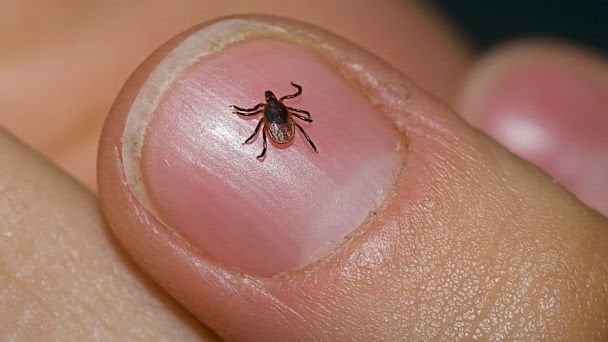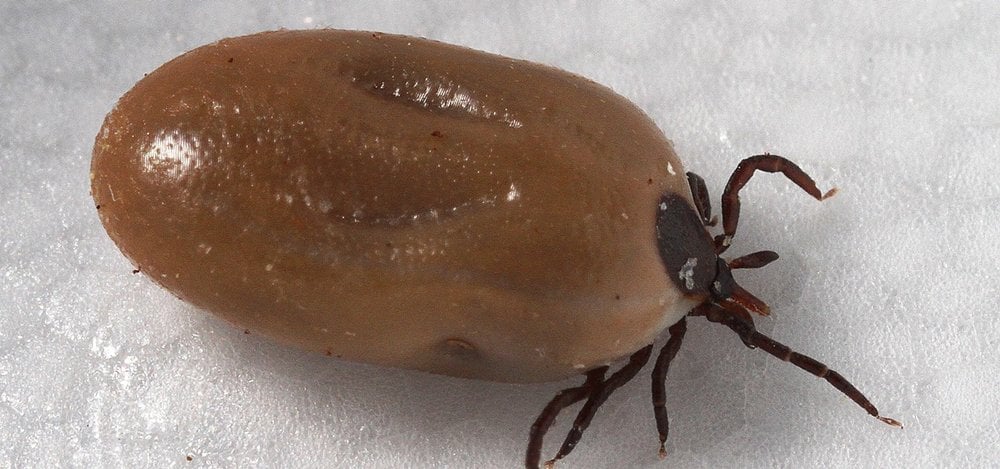
New Jersey Suffering from THIS Mysterious and New Tick Species!

The citizens of New Jersey may have survived the harsh winter this year, but instead of sighing in relief, most of them dread the coming of Summer in fear of getting infected with this mysterious tick species.
The Unknown Tick Species
Last August 1, 2017, a farmer brought his pet Hannah, a 12-year old Icelandic sheep as they went to the Hunterdon County Health Office to have a medical consultation. The investigators were in shock when they found thousands of ticks all over Hannah’s body. They even said it soon crawled on their pants as soon as the sheep stepped foot inside. She’s been carrying hundreds of ticks in all three stages namely: larva, nymph, and adult.

The veterinarians were appalled to see Hannah bringing thousands of companions with her. It turned out these companions she had were ticks covering her entire body! Yikes!
Even if the ticks were mainly concentrated on her face and ears, they still managed to get beneath her thick coat. They also recovered questing ticks in the field which were already in the larvae stage.
What’s more disturbing was the fact that these ticks didn’t even need mating to multiply! Another mysterious case they had to solve was the fact that Hannah wasn’t even transported internationally and even outside of Hunterdon County last year, so they didn’t have any clues as to where to find the origin of the said tick’s invasion.
The Asian Tick
Aside from the horrible ticks all around her, the veterinarians found it disturbing that the tick species they obtained weren’t typically found in the United States. In fact, it didn’t even qualify with New Jersey’s top 5 tick species found in the state namely:
- Amblyomma americanum
- Dermacentor Variabilis
- Ixodes Cookei
- Ixodes scapularis.
- and Rhipicephalus sanguineus

The mysterious, unnamed tick species was later on identified as East Asian or Longhorned Tick
Instead, the scientists identified the tick species as Haemaphysalis longicornis, also known as East Asian or Longhorned Tick. True to its name, this tick is normally found in East Asia (China, Korea, Japan, and Russia), some parts in New Zealand, Australia, along with Pacific Islands such as Fiji, New Caledonia, Western Samoa, Tonga, and Vanuatu.
This tick is responsible for spreading a virus in China known as severe fever with thrombocytopenia syndrome (STFS). The victims suffer from high fever and low platelet count to the point where you start bleeding. Aside from that, it develops gastrointestinal symptoms, lower down your white blood cells to weaken your immune system and elevate your liver enzymes. Around 30% of China’s population infected with STFS died due to multiple organ failures.
Meanwhile, in Japan, the East Asian or Longhorned thick also spread Rickettsia japonica virus, which also causes Japanese sheeps fever and theileriosis. It also carries other microbes like Anaplasma, Borrelia spp, and Ehrlichia too. This tick is dangerous since it attaches to a mammal’s skin (animal or human) and inserts its feeding tube to suck your blood for days. What’s worse, you won’t even notice you’re already infected since it uses its saliva to numb the infected area. While the tick feeds, it also deposits various microbes (as stated above) to the host’ body.
The First Breeding Tick in NJ
Since last year, the NJ health officials have tried eliminating and controlling the spread of ticks by washing Hannah with chemicals, spraying the infected field, and cutting tall grasses around the area. However, they still aren’t sure if their efforts are enough to get rid of ticks. In fact, they hoped that the ticks died down during the Winter season this year.
However, the New Jersey Department of Agriculture just announced last Friday that despite the harsh cold breeze and ice frost last Winter, they still monitor the presence of this new tick species. Although no reports of a human being infected with ticks were reported yet, it’s only a matter of time before someone will if this continues. The New Jerseyans may have to face a tough Summer 2018 this time.
More in Career
-
Why American Consumers Are Falling Behind on COVID-Era Debt
When the world was grappling with the health crisis brought on by COVID-19, the U.S. economy faced an equally formidable challenge:...
November 27, 2023 -
Dr Dre and Ex-Wife Nicole Young Finalise $100m Divorce Settlement
After months of legal proceedings, Dr Dre, the legendary rapper, producer, and businessman, officially brought his tumultuous divorce from ex-wife Nicole...
November 22, 2023 -
5 Tell-Tale Signs That It Is Time to Say Goodbye to Your Current Job
Are you feeling like your job is more like a ball and chain than a fulfilling career? The daily grind, the...
November 19, 2023 -
WWE Signs $1.4 Billion Broadcasting Contract for SmackDown
In an explosive turn of events, World Wrestling Entertainment (WWE) has just unleashed some earth-shattering news for its legions of fans....
November 9, 2023 -
Navigating the Mortgage Maze as Interest Rates Take a Historic Leap
The U.S. housing market is nothing short of a dynamic entity. It evolves, reacts, and sometimes, just like the current real-estate...
November 3, 2023 -
Celebrity Couples Where the Woman Has a Higher Net Worth
In a world where gender roles and financial dynamics constantly shift, it’s not unusual to find celebrity couples where the woman...
October 27, 2023 -
Why the Gender Pay Gap Could Be Worsening
Picture this: Two college students, Alex and Charlie. Both are bright, have the same interests, and are ready to embrace the...
October 19, 2023 -
JC Penney’s Remarkable $1 Billion Revival Plan
In a remarkable turnaround, JC Penney unveiled a bold $1 billion revival plan, breathing new life into a brand that faced...
October 12, 2023 -
Shattering the American Dream: Mortgage Rates, Inflation & Cost of Living
You know that feeling when you are dreaming of something you have wanted for so long, only to watch it vanish...
October 6, 2023















You must be logged in to post a comment Login